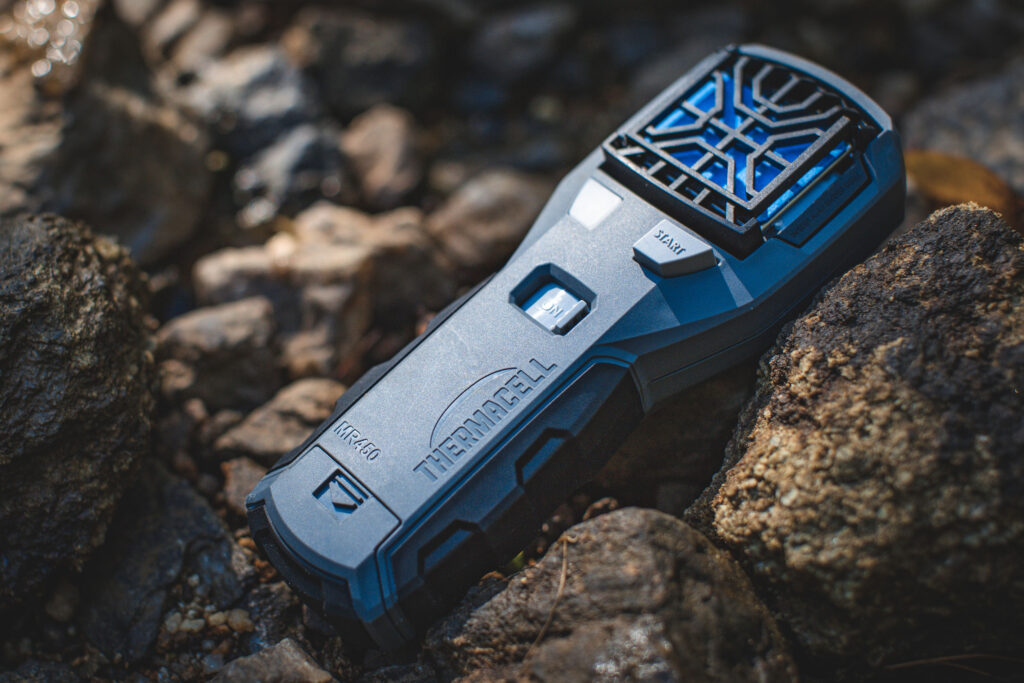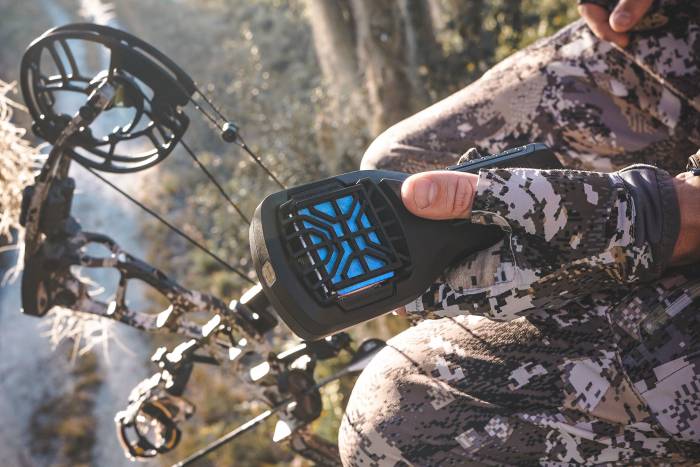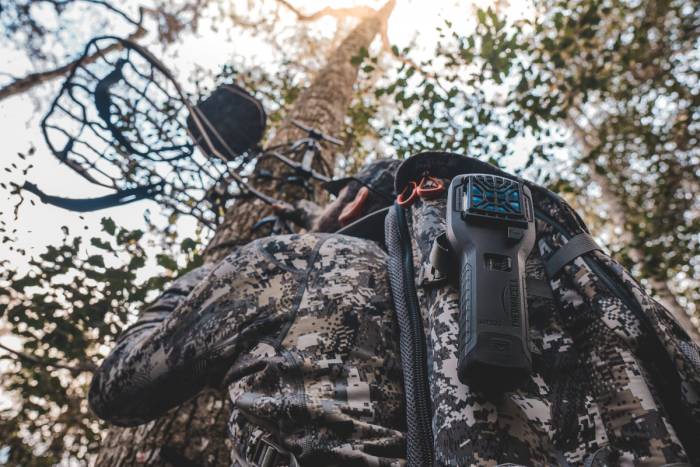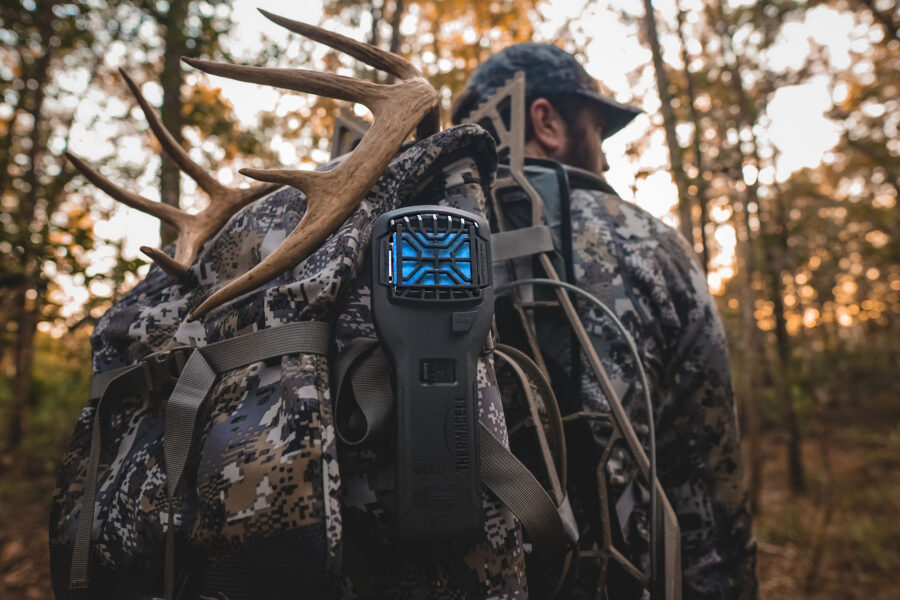In the realm of hunting, the sense of smell plays a crucial role in both the hunter’s strategy and the prey’s evasion tactics. Can Deer Smell Thermacell? Understanding Impact on Deer is very important for hunters. Deer, known for their acute olfactory senses, can detect even the faintest of scents, making scent control a vital aspect of hunting success. In recent years, Thermacell devices have gained popularity among hunters for their purported ability to repel mosquitoes and other insects. However, hunters often wonder whether the scent emitted by these devices could potentially alert deer to their presence. This article delves into the science behind deer’s sense of smell and explores whether they can indeed detect Thermacell.
Understanding Deer’s Sense of Smell:

Deer possess an extraordinary sense of smell, which they heavily rely on to detect danger, locate food, and communicate with other deer. Their olfactory system is estimated to be hundreds of times more sensitive than that of humans, allowing them to detect scents from considerable distances. Deer possess a specialized organ called the vomeronasal organ, or Jacobson’s organ, which enhances their ability to detect and analyze various scents in their environment.
Before delving into whether deer can smell Thermacell, it’s essential to understand the remarkable olfactory capabilities of deer. Deer rely heavily on their sense of smell to detect danger, locate food sources, and communicate with other deer. Research indicates that deer have up to 297 million scent receptors in their noses, compared to about 5-6 million in humans. This heightened sense of smell allows deer to detect scents from considerable distances and in various environmental conditions.
What is Thermacell?

Thermacell is a popular brand that produces portable devices designed to repel mosquitoes, flies, and other flying insects. These devices utilize a small butane cartridge to heat a repellent mat, which then releases allethrin, a synthetic copy of a natural insect repellent found in chrysanthemum plants. Thermacell devices are favored by hunters and outdoor enthusiasts due to their effectiveness in creating mosquito-free zones without the need for sprays or lotions.
Thermacell devices work by releasing allethrin, a synthetic copy of a natural repellent found in chrysanthemum flowers, into the air. Allethrin creates a zone of protection by repelling mosquitoes and other biting insects within a certain radius, typically up to 15 feet. While Thermacell claims that allethrin is not detectable by humans beyond a few feet and does not have a strong odor, the question remains whether deer, with their heightened sense of smell, can detect it.
Can Deer Smell Thermacell?
The question of whether deer can smell Thermacell is a complex one. While Thermacell devices are primarily designed to repel insects rather than mask human scent, many hunters believe that the vapor emitted by these devices could potentially affect deer behavior. However, there is limited scientific research specifically addressing the ability of deer to detect Thermacell.
Some hunters claim that deer can indeed detect the odor emitted by Thermacell devices, especially in areas with high deer traffic. They argue that while the primary purpose of Thermacell is to repel insects, the scent it emits may still be detectable to deer, particularly if they are downwind of the device. Additionally, some hunters report observing deer exhibiting skittish behavior or avoiding areas where Thermacell devices are in use, though these anecdotal accounts vary in consistency.
On the other hand, proponents of using Thermacell for deer hunting argue that the allethrin vapor released by the devices is unlikely to be strong or distinct enough to alert deer to the presence of humans. They point to the fact that allethrin is a synthetic compound designed to mimic a natural insect repellent and is not specifically formulated to mask human scent. Furthermore, they suggest that the distance between the Thermacell device and the deer, as well as other environmental factors such as wind direction, could influence whether deer detect the scent.
Practical Considerations for Hunters:
Regardless of the ongoing debate surrounding Thermacell and its potential impact on deer hunting, hunters should prioritize comprehensive scent control strategies when planning their hunts. This includes:
- Properly washing hunting gear with scent-free detergents.
- Using scent-free soaps and shampoos.
- Storing hunting clothing in scent-proof containers or bags.
- Employing scent-neutralizing sprays or clothing treatments.
- Paying close attention to wind direction and thermals while hunting.
Scientific Studies and Hunter Experiences:

There is limited scientific research specifically addressing whether deer can detect Thermacell. However, anecdotal evidence from hunters suggests mixed results. Some hunters report observing deer showing no apparent reaction to the presence of a functioning Thermacell device, while others claim that deer have been spooked or have exhibited signs of unease when in close proximity to the device.
Factors Influencing Deer’s Response:

Several factors may influence whether deer detect and react to the scent of Thermacell:
- Concentration: The concentration of allethrin emitted by the Thermacell device may play a role. While the scent may be faint to humans, it could potentially be more discernible to deer due to their heightened olfactory sensitivity.
- Wind Direction: Wind direction can carry scents, including those emitted by Thermacell, to deer. Hunters need to consider wind direction when placing Thermacell devices to minimize the risk of alerting deer to their presence.
- Deer’s Behavior: Deer may exhibit varying responses to unfamiliar scents based on their previous experiences and the context in which they encounter them. Factors such as the time of year, hunting pressure, and deer activity levels may influence their reaction.
Finally,
While the question of whether deer can smell Thermacell remains unanswered definitively, hunters should exercise caution and consider potential implications when using these devices. While some hunters may observe no adverse effects on their hunting success, others may find that deer react negatively to the scent emitted by Thermacell. As with any hunting tactic, understanding deer behavior, being mindful of scent control measures, and adapting strategies based on field observations are essential for maximizing hunting success while minimizing detection by prey. Further scientific research into this topic could provide valuable insights for hunters seeking to optimize their hunting techniques.
While Thermacell devices may offer some degree of odor reduction, they should not be relied upon as the sole means of scent control in deer hunting. Instead, hunters should employ a combination of proven scent control techniques to minimize their odor and increase their chances of a successful hunt. Ultimately, understanding deer behavior, including their remarkable sense of smell, is key to becoming a proficient and ethical hunter.



